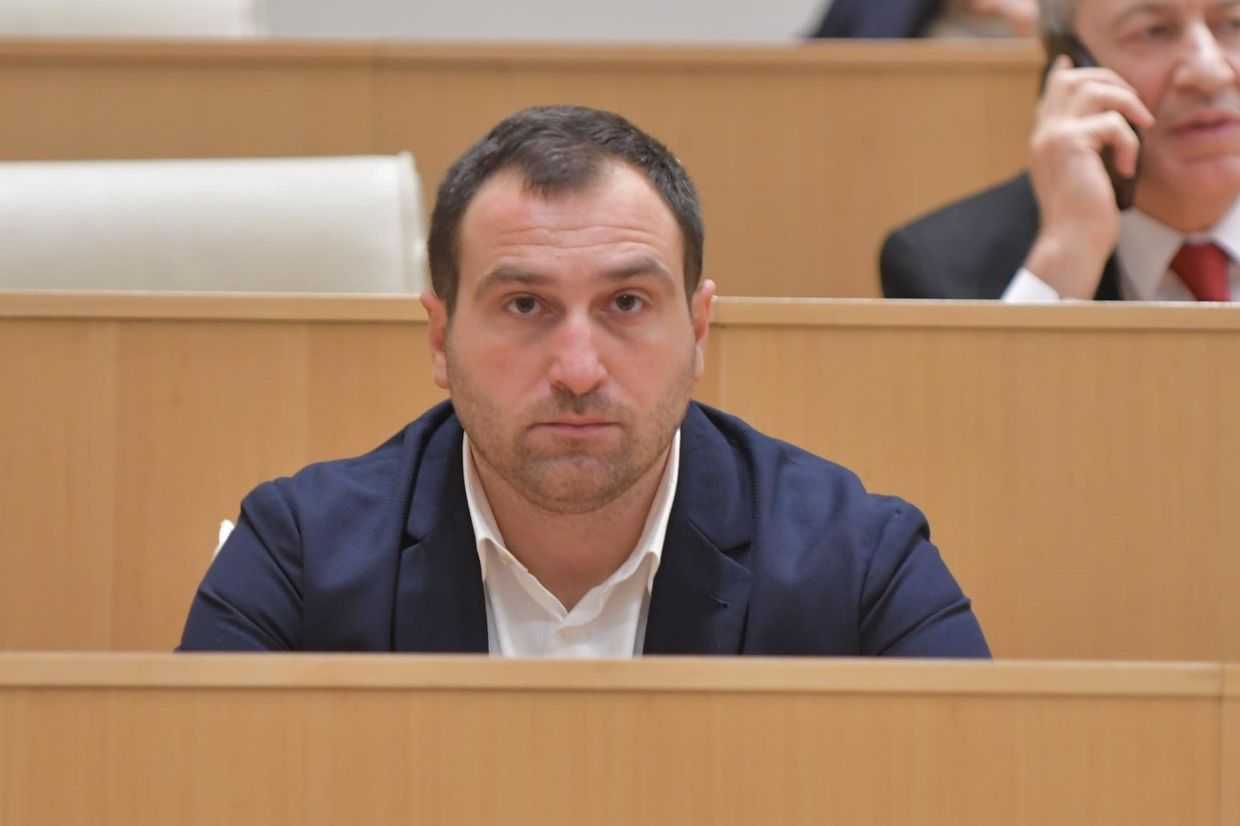For the last five years, Georgian photographer and multimedia artist Elene Glonti has been tracking the decline of Georgia’s market culture with a photo project titled No More Bazaar.
Glonti is a sharp and spirited woman in her late twenties, with a keen interest in the marginalised sectors of Georgian society. She began the project in 2020, with a visit to the Eliava bazaar in Tbilisi. She was immediately taken by the people she met there, by their pragmatism and resilience, and took a lot of photographs, writing down what she learnt through conversations with her subjects.
‘I don’t like to exoticise anything, especially working class communities’, she tells OC Media, ‘but it is also true that they are very honest, they stand firmly on the ground, their heads are not in the clouds, so it’s all real’.
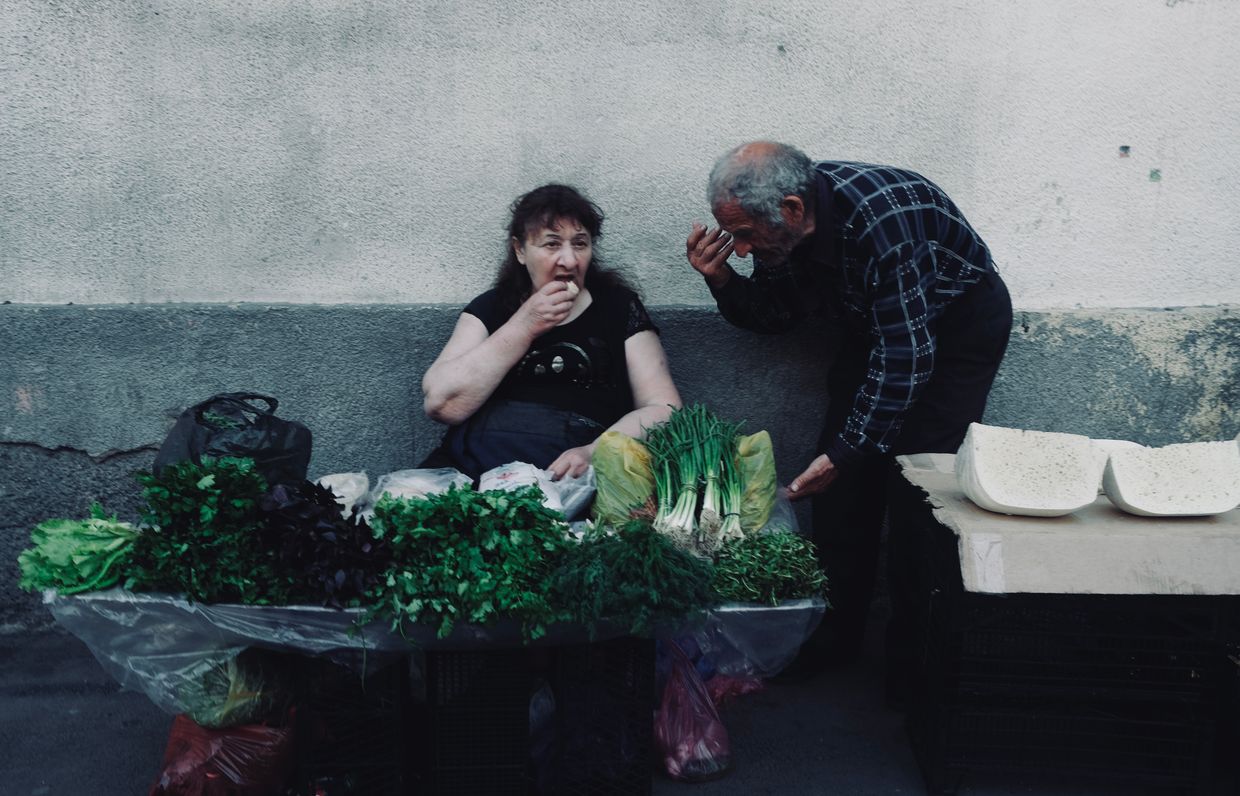
Since then, Glonti’s photographed in the Navtlugi, Dezerter, Marmeuli, and Sachkhere Central Bazaars in order to create a multi-media display consisting of photos and interviews. She wants these people to be named, to tell their stories, but also to not dehumanise her subjects by using them as symbols in service of a narrative about contemporary Georgia. In this sense, her work can better be described as archivism.
‘I’m always interested in preserving the memory of something that right now feels irrelevant to the world’ she says.
Asked how the vendors responded to her presence and her camera, Glonti replies that they are generally mistrustful. They’ve had bad experiences with the media before.
‘It takes time’, she says. ‘You need to go back often, you need to communicate, and you never walk away if someone isn’t happy, you go up to them and delete the photo in front of them. You never steal.’
She always makes sure to stay in touch with her subjects, emailing them the photographs she has taken.
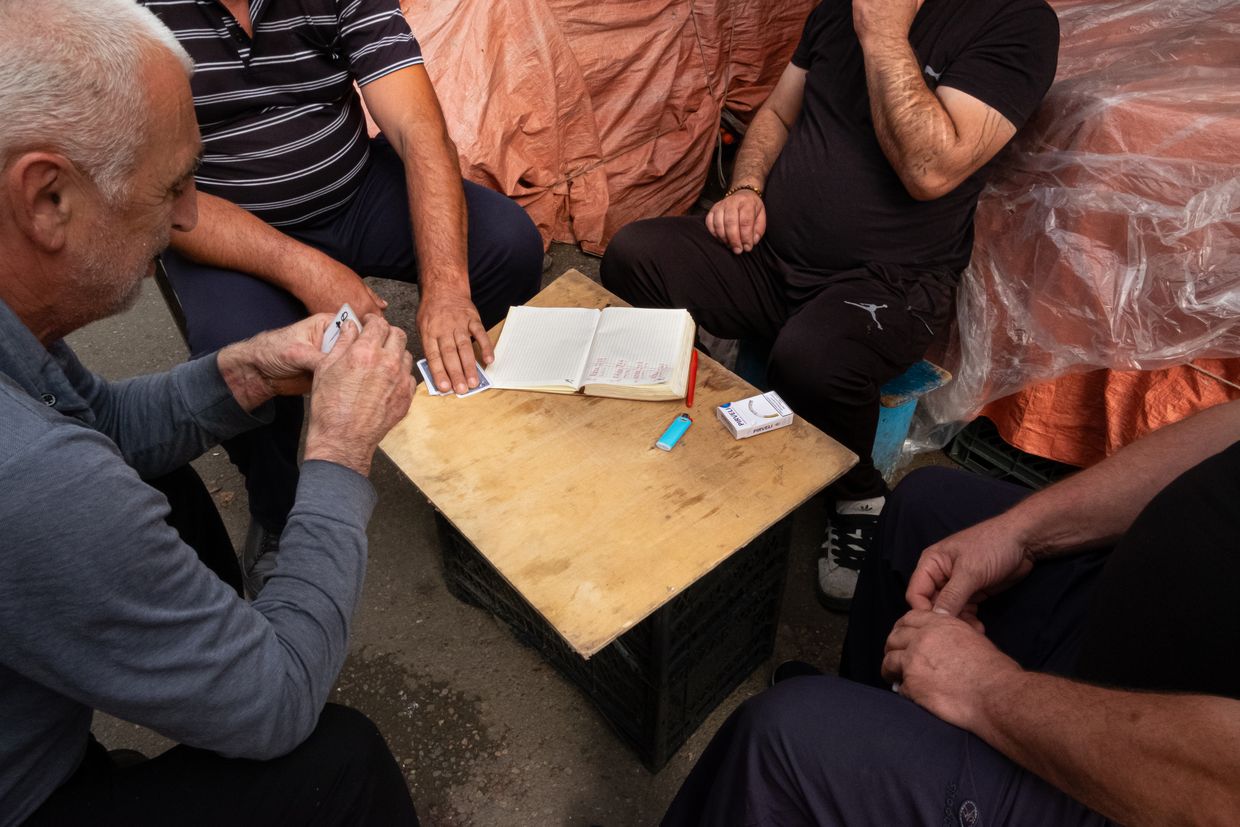
Glonti’s approach to photography and her relationship with her subjects was forged abroad. From 2015–2018, Glonti studied at Sarah Lawrence College in New York, majoring in Visual Arts. This was where she began taking photos (she’d been a painter before) under the auspices of renowned American photographer and educator Joel Sternfeld. Sternfeld, now 81, was a titan of early colour photography, best known for his 1987 photo book American Prospects which documented ordinary life all over the US.
At her first seminar, Sternfeld told Glonti to just ‘go and shoot’, to ignore the technical aspects of the camera. She returned with some pictures of the Bronxville police station — she’d taken them at sunset and, not knowing how to adjust the ISO (the camera’s sensitivity to light), the pictures had come out in extraordinary violet tones. Sternfeld loved them.
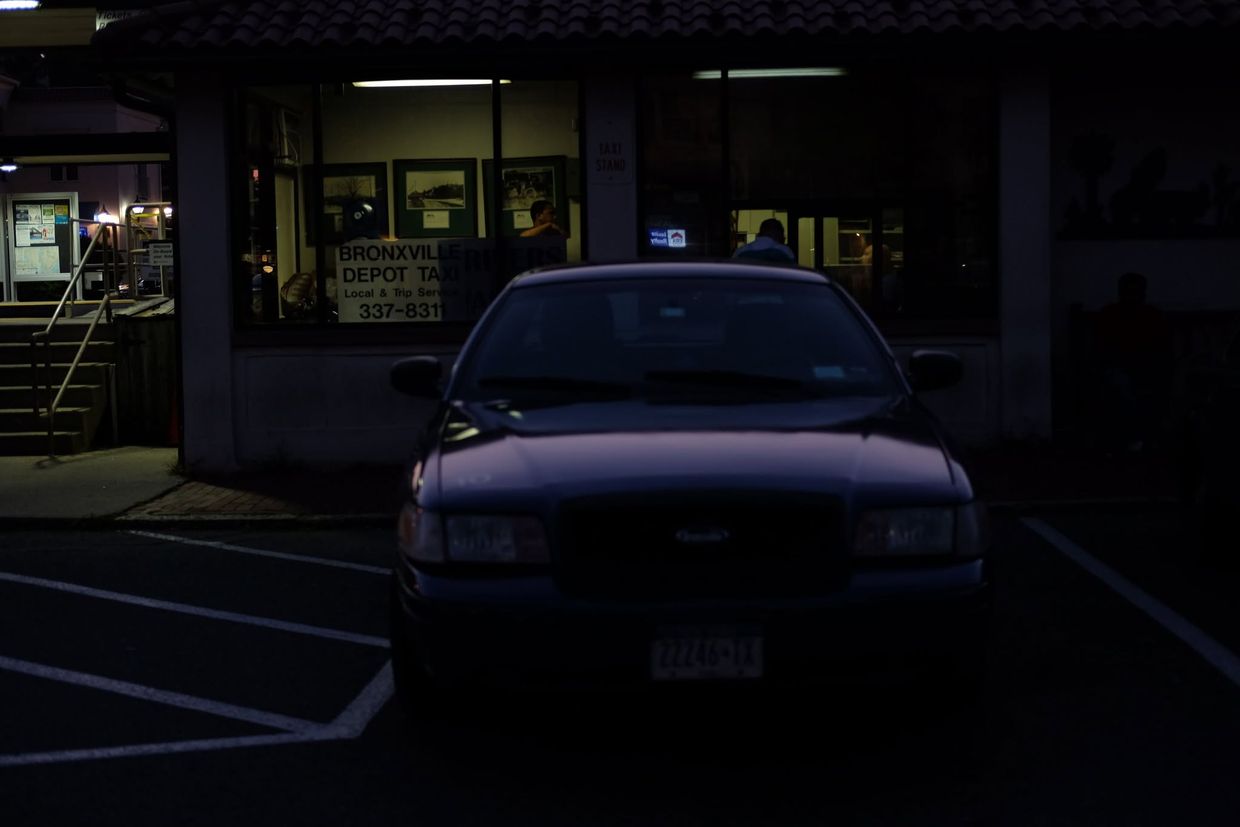
‘You just took the camera and you really made it your own’, he told her. In this way, Sternfeld helped Glonti to lean into her own subjectivity.
‘You are in a way really penetrating the world with a camera,’ she says, ‘you extend your presence beyond yourself, and you change your surroundings’.
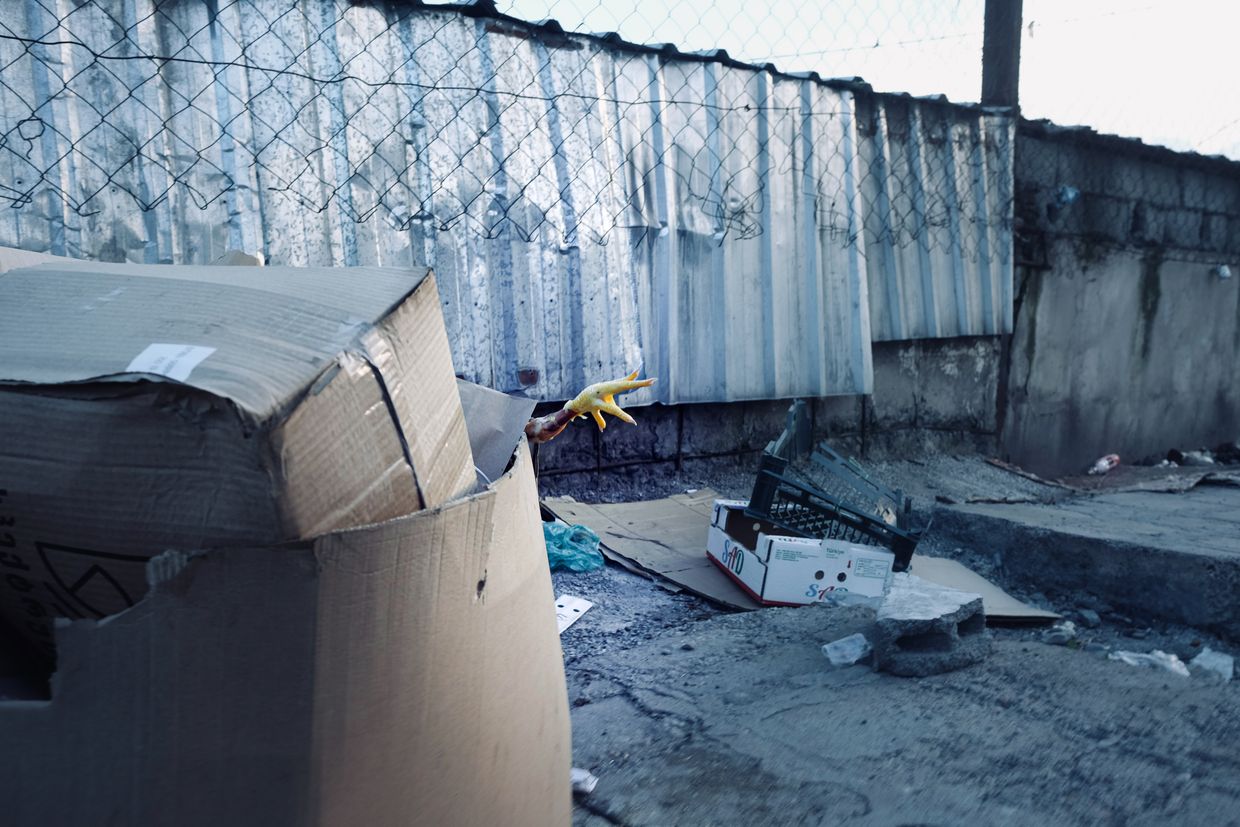
US President Donald Trump was inaugurated for the first time while Glonti was at Sarah Lawrence, and there was, she says, ‘a lot of discussion about who was allowed to photograph what’.
To Glonti these debates mostly felt like ‘academic drama’, and anyway, she says, ‘as a person coming from an ancient country which has been overlooked by the world for centuries, I can’t relate to the mainstream perspective […] I am colonised, my body is colonised, I am a woman, so I relate to the outcasts’.
Indeed, women and their lives are one of Glonti’s primary concerns.
‘I’m really a very hardcore feminist’, she says, grinning, ‘this is my lifelong topic’.
On the position of women in Georgia, she says: ‘from one point of view it’s very patriarchal, very macho, but there is an underlying matriarchate — every Georgian family is run by a woman, especially after three wars […] women had to really step up and carry this country on their backs’.

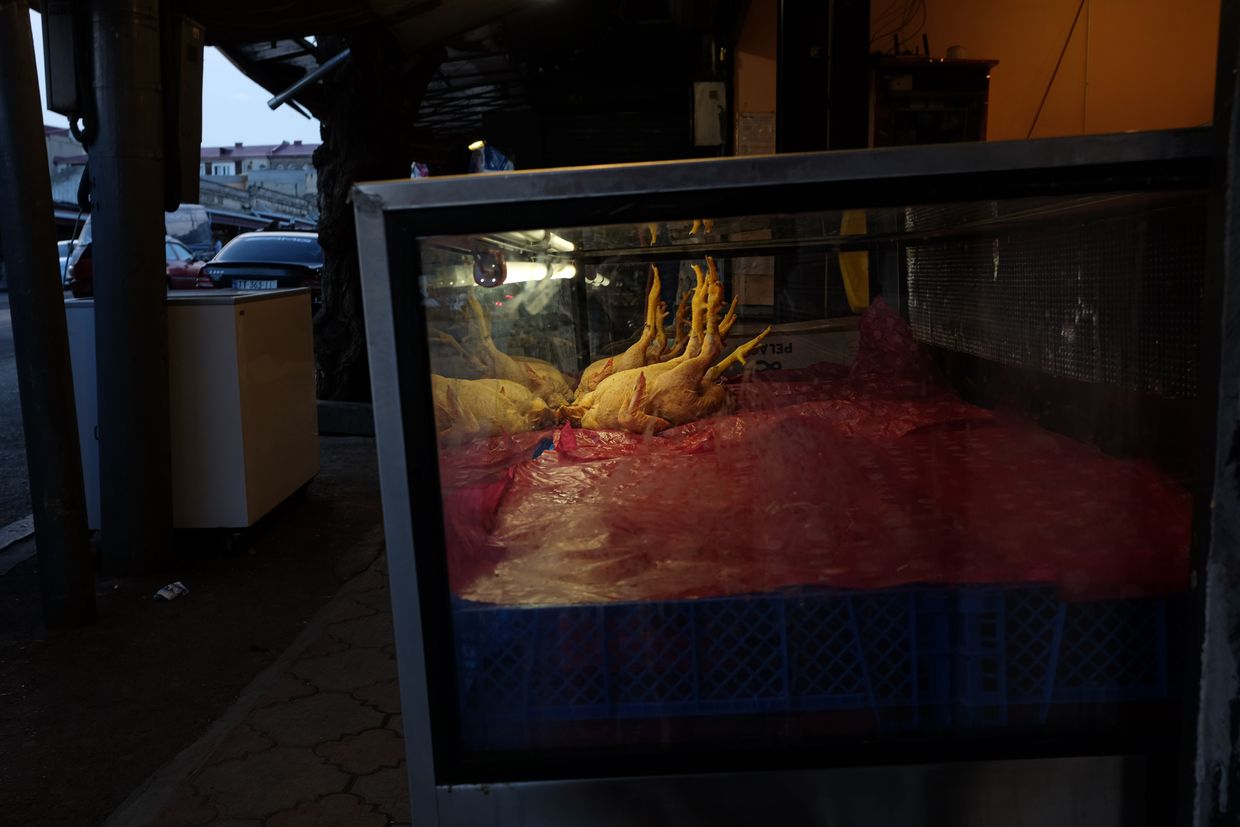
Older women make up a good part of Georgia’s bazaar vendors, often combining their work with more traditional domestic duties. Now that bazaar culture is being decimated by supermarkets and eager developers, it’s growing ever more difficult for these women to feed themselves and their families.
According to Georgia’s National Statistics Office for Georgia, the number of bazaars (counted as permanent spaces, organised and rented by a legal entity, as opposed to street vendors) has declined by 11% in the last ten years, falling from 218 in 2014 to 194 in 2023.
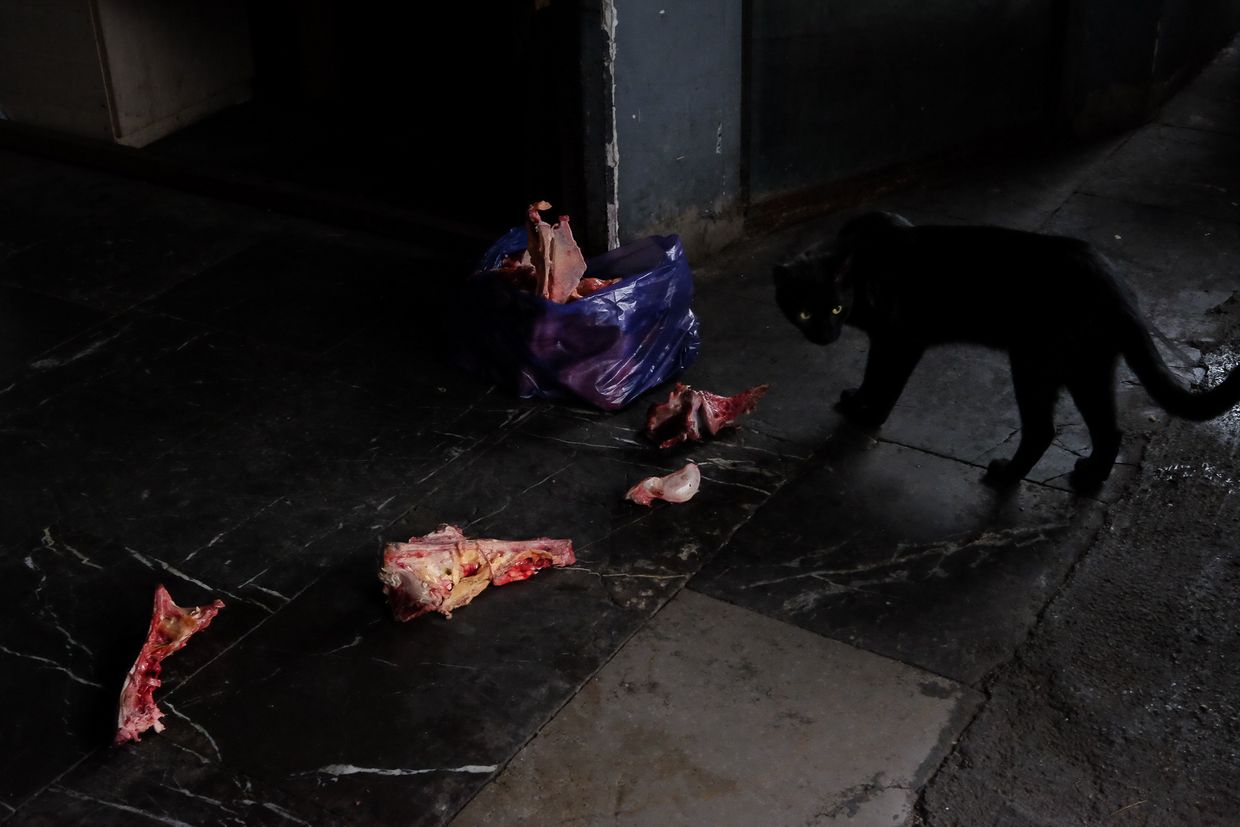
Tbilisi’s largest bazaar, Deserter, was the site of protests in the summer of 2024 after the announcement of plans to turn the market into a shopping mall and car park. The protests seem thus far to have successfully halted the project, although the situation appears precarious. Several bazaars have seen fires destroy huge quantities of stock, like the fire in Station Square market in April 2025.
In the markets that have yet to be closed, vendors now struggle to scratch out a living.
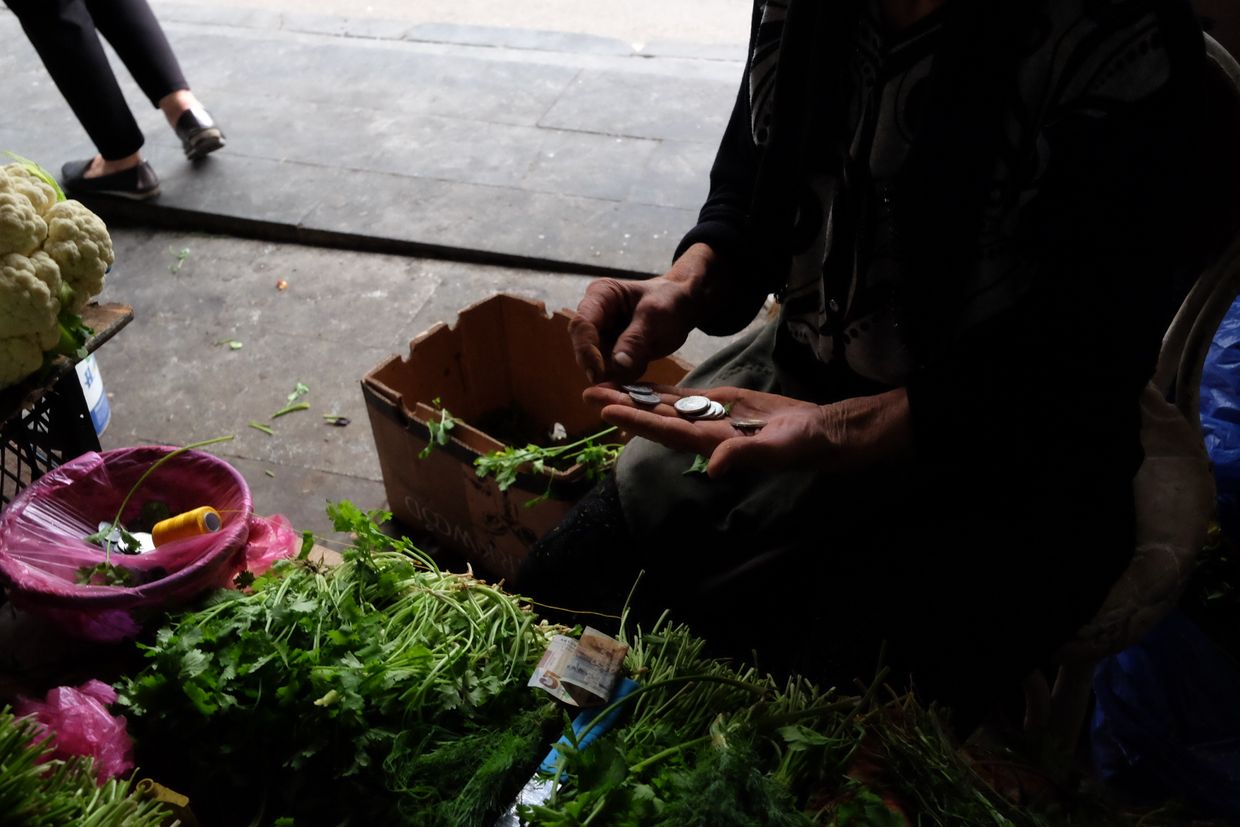
One woman Glonti photographed in the small bazaar surrounding Tbilisi’s Ghrmaghele station, an IDP from Abkhazia selling counterfeit men’s Versace underwear, told Glonti she had to borrow ₾20 ($8) to come to work that day.
‘People have become so poor I cannot sell anything,’ she told Glonti. ‘It will be a very nice day if I’m able to just return this ₾20.’

Glonti’s project ‘No More Bazaar’ is a translation of the Georgian slang phrase ‘bazaari ara’, meaning ‘agreed’. ‘Ara’ is Georgian for ‘no’, so the term references the market, as a place of haggling and broader social interaction, to mean ‘no discussion’. The English slang version might be rendered as ‘say less.’
For Glonti, the death of the bazaar is massively contributing to social alienation in Georgia. Bazaars were social hubs above all, places where a myriad of lives would intersect, where you would come not only to buy your cheese but to chat with the woman selling you the cheese about her grandson’s studies, or her husband’s bad back. Glonti quotes 19th century Georgian historian Ekvtime Takaishvili as saying that before the proper establishment of media, people would come to certain corners of bazaars to hear the news being announced.
Their disappearance spells greater class isolation between the working and middle classes, and between Georgians and ethnic minorities, Glonti says. Even in supermarkets interactions with staff have been replaced by self-service machines.
‘It’s so anti-humane’, she says. ‘It’s anti-you.’

According to the United Nations Development Programme, around 41% of Georgia’s population depends on agriculture for their livelihood, yet many supermarkets fill their shelves with imported goods from places such as Russia, Turkey, and Central Asia. With no strong farmers’ unions and a weak distribution network, local producers struggle to compete.
‘People are exhausted’, Glonti says. ‘You walk into a supermarket and end up buying Russian products, even as Russia is occupying your country.’


In Eliava, Glonti once came across a particularly striking vendor, a very tall man with mournful eyes. She asked if she could take a photograph, and he assented and took off his hat. He told her he’d fought in all Georgian wars.
‘He was a war hero’, she says, ‘lost in Eliava market with his scrap metal.’
Glonti sees the bazaars as a sort of condensation of all of Georgia’s tragedies — ‘these kinds of spaces bring all these traumas together.’
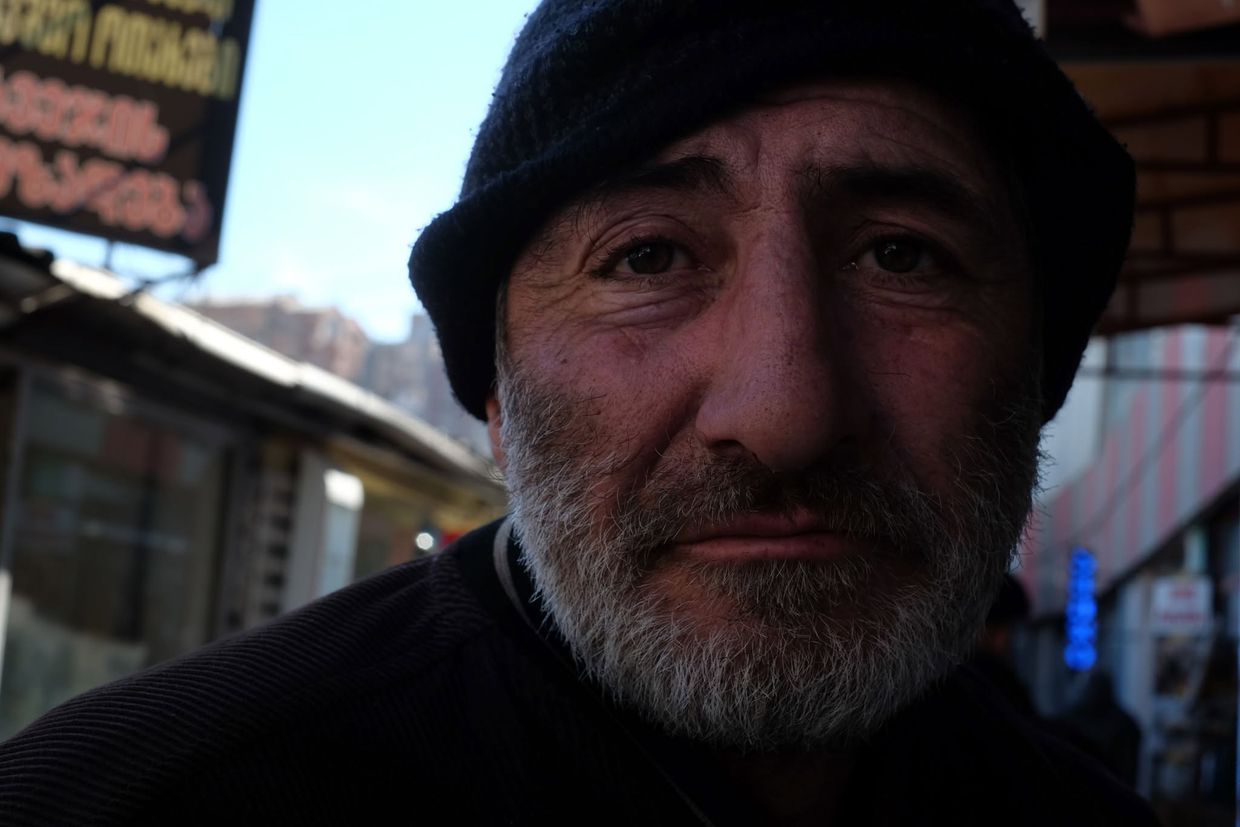
As she sees it, the decimation of the bazaars is part of an ongoing attempt at historical erasure, a break with Georgia’s troubled past and a decisive move into the brave new world of unchecked capitalism. Her subjects ‘do not know how to adapt to the new world order, so they are being left behind’.

Glonti’s conversation is peppered with references, mostly to female artists or thinkers. She paraphrases the Joan Didion line from Slouching Towards Bethlehem: ‘I think we are well-advised to keep on nodding terms with the people we used to be, whether we find them attractive company or not. Otherwise they turn up unannounced and surprise us, come hammering on the mind’s door at 4:00 of a bad night and demand to know who deserted them, who betrayed them, who is going to make amends.’
For her, this impulse to turn away from, even erase, the Soviet past, is more than just a cultural shift. It has tangible consequences for Georgia’s most vulnerable, who are cast adrift in a society eager to reinvent itself. Glonti sees it as a kind of exile from the present.
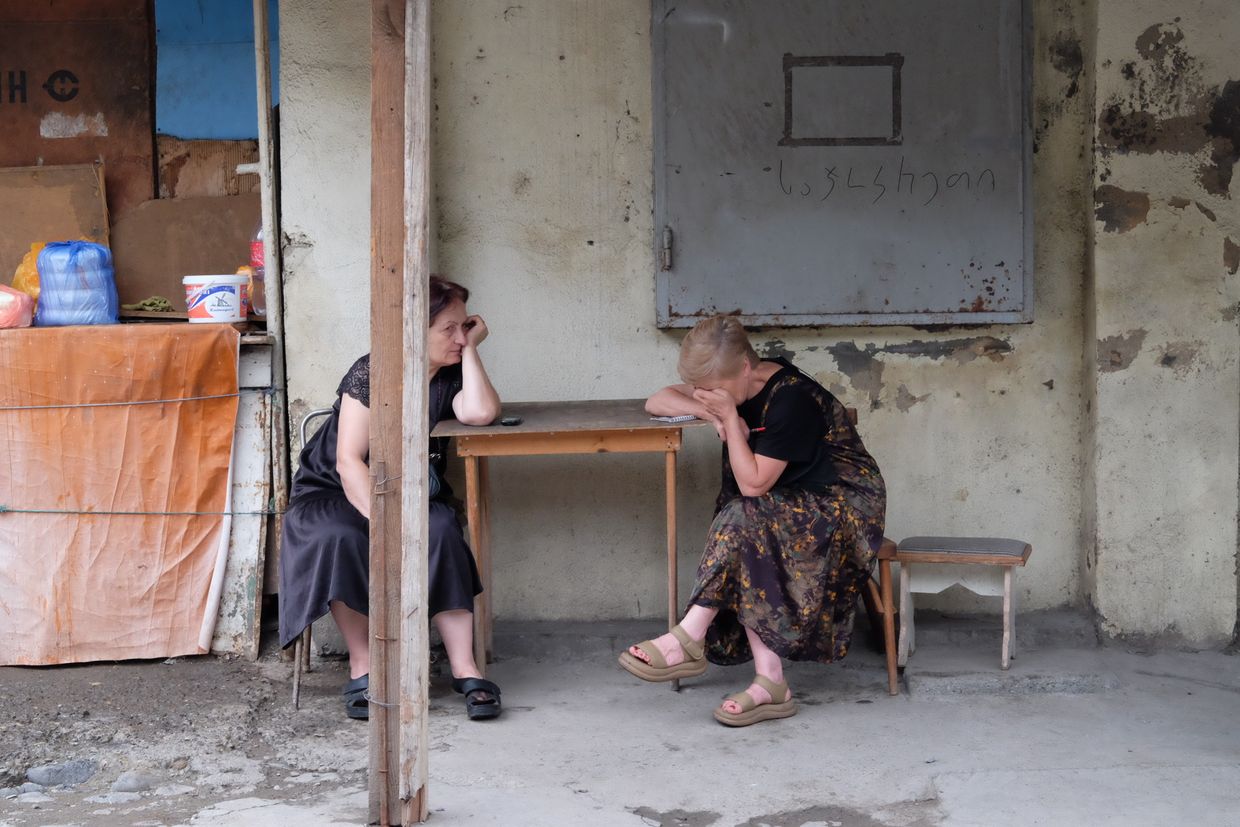
‘Exile’ is also the title of Glonti’s next project, which is about elderly women.
‘They’ve ceased to exist in the public eye,’ she says, ‘so I photograph them in their homes.’
There’s a counter-intuitive benefit to this public disregard, she says. Having largely outlived their use value as objects and carers, ‘they do not have to put on this whole spectacle, these multiple faces, this being who has to please everyone in her life, finally they can be themselves […] there’s a rare freedom in that.’
The desire to cultivate a space in which women can enjoy this freedom is partly what drove Glonti to found the Caucasian Art Circle (named in reference to the Brecht play, Caucasian Chalk Circle) in 2021.
It’s also ‘another form of resistance to isolation’, she says.

The Caucasian Art Circle is an organisation open to both men and women of all ages and backgrounds. Glonti’s goal was to make art accessible to everyone: ‘art has to be available because it is a form of therapy, of exchange, of community, of memory.’
Participation is the point; the group engages in acting workshops, scriptwriting, photography, and choir singing. Glonti organises screenings of films by directors like Agnès Varda and Chantal Ackerman, as well as works from the broader tradition of avant-garde cinema, followed by group discussions, creating a space for participants to engage with unconventional forms of storytelling and explore perspectives often overlooked in mainstream film.
Many women in their sixties come, she says, ‘and you cannot imagine how they act, the stories that they bring with them, the characters that they create, and the whole energy that is in the room, the openness, the vulnerability, the way each of the groups appreciate each other’.
‘I’m not proud of any of my work’, she says, ‘I feel like it all needs to get better and better, but I’m so proud of this project’.
‘Those who don’t consider themselves artists are the best artists,’ she says. ‘There is so much suppressed energy in them’.

Glonti has yet to find proper funding for the Caucasian Art Circle project, but it’s obvious she is determined to keep it alive. Her grandfather was famous theatre director and teacher Ghizo Zhordania, who she says raised generations of Georgian actors.
‘Teaching was always part of my family, and I know how much it means’.
Though Glonti probably wouldn’t characterise what she’s doing with the Caucasian Art Circle as teaching per say — more like facilitating — she does feel that art is ‘a world that you need someone to guide you to’. She wants to affirm, in people who’ve been unable financially or psychologically to justify dedicating time to creativity, that making art has an unquantifiably curative value.
All of Glonti’s projects are ongoing, she says, though she is planning to release a photo book of her No More Bazaar project. In her parting words, she asked that this article be dedicated to Manana Darakhvelidze, a street vendor and one of the two people killed in the collapse of a building on Station Square on 14 July 2025.







